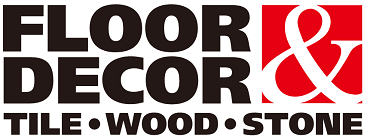Real estate investing offers the potential for long-term wealth, but securing financing can often be a challenge. Traditional mortgages focus on a borrower’s personal income, tax returns, and debt-to-income ratio, making it difficult for self-employed investors, entrepreneurs, or those reinvesting profits to access capital.
DSCR loans provide a solution by evaluating the property’s income rather than the borrower’s personal finances. This approach enables investors to finance multiple properties and scale their portfolios efficiently.
What Are DSCR Loans?
DSCR stands for Debt Service Coverage Ratio, a financial metric used to measure whether a property can generate enough income to cover its debt obligations.
DSCR Formula:
Net Operating Income ÷ Total Debt Payments
Example:
- Rental income: $7,000
- Mortgage payment: $5,000
- DSCR = 1.4
Most lenders require a minimum DSCR of 1.20, meaning the property earns 20% more than its debt payments. A higher DSCR reduces the lender’s risk and increases the likelihood of loan approval.
How DSCR Loans Differ from Traditional Mortgages
Traditional mortgages rely on personal income, employment verification, and tax documents. DSCR loans, however, are property-focused. The primary question lenders ask is: Can the property cover its loan payments?
Key Differences:
| Traditional Loan | DSCR Loan |
| Personal income, W-2s, and DTI | Property rental income |
| Strict approval process | Streamlined approval |
| Limited number of mortgages | Portfolio growth possible |
This property-focused approach makes DSCR loans ideal for investors, especially those with multiple properties or non-traditional income sources.
Benefits of DSCR Loans
1. No Personal Income Verification
Borrowers don’t need to show tax returns or pay stubs. Qualification is based on property cash flow.
2. Faster Closings
With less paperwork, DSCR loans can close faster than traditional mortgages.
3. Scalable Investment Opportunities
Each property is evaluated individually, enabling investors to acquire multiple properties without being limited by personal income.
4. Flexible Loan Structures
Investors can choose from fixed-rate, adjustable-rate, or interest-only loans to optimize cash flow.
5. Great for Self-Employed Borrowers
Entrepreneurs, freelancers, and business owners often benefit from this financing option since personal income is not the main focus.
Potential Drawbacks
While DSCR loans are advantageous, investors should be aware of some trade-offs:
- Higher Interest Rates: Typically above conventional mortgages.
- Larger Down Payments: Often 20–25% of property value.
- Income Reliance: Properties must generate sufficient rental income to qualify.
Despite these considerations, DSCR loans offer flexibility and scalability that traditional mortgages cannot match.
Who Should Consider DSCR Loans?
- Portfolio Investors: Those looking to acquire multiple rental properties.
- Short-Term Rental Owners: Airbnb and vacation rental investors.
- Self-Employed Professionals: Individuals with irregular income.
- Buy-and-Hold Investors: Those building long-term passive income.
Real-Life Example
An investor purchases a four-unit property for $700,000:
- Monthly rental income: $9,000
- Monthly mortgage: $6,500
- DSCR = $9,000 ÷ $6,500 = 1.38
Because the property’s DSCR exceeds the lender’s minimum requirement of 1.20, the loan is approved—even if the investor’s personal income is not high.
Tips for Maximizing DSCR Loan Approval
- Choose High-Rent Areas – Properties in strong rental markets are more likely to qualify.
- Prepare Rental Documentation – Leases, rent rolls, and appraisals help demonstrate reliable income.
- Maintain Good Credit – Lenders still consider credit when determining interest rates.
- Have Reserves Ready – Proof of 3–6 months of mortgage payments may be required.
- Shop Multiple Lenders – Requirements and terms vary, so comparing lenders is beneficial.
DSCR Loans vs. Other Financing Options
- Conventional Mortgages: Lower rates but dependent on personal income.
- Hard Money Loans: Quick, but short-term and costly.
- Private Financing: Flexible but sometimes unpredictable.
- DSCR Loans: Long-term, property-focused, and investor-friendly.
For investors seeking buy-and-hold strategies, DSCR loans strike a practical balance between accessibility and cost.
Why DSCR Loans Are Popular
With more people pursuing financial independence through real estate and the rise of self-employment, traditional income-based loans are often inadequate. DSCR loans align perfectly with cash-flow-driven investment strategies, making them increasingly popular among modern investors.
Final Thoughts
DSCR loans offer an effective way for investors to finance income-producing properties without being limited by personal income. By evaluating a property’s cash flow rather than the borrower’s earnings, they provide faster approvals, portfolio scalability, and greater flexibility.
While down payments may be higher and interest rates slightly above conventional mortgages, the ability to grow a real estate portfolio efficiently makes DSCR loans an essential tool for serious investors.
For anyone focused on building wealth through rental income, DSCR loans are a strategic financing option that opens doors traditional mortgages often cannot.

